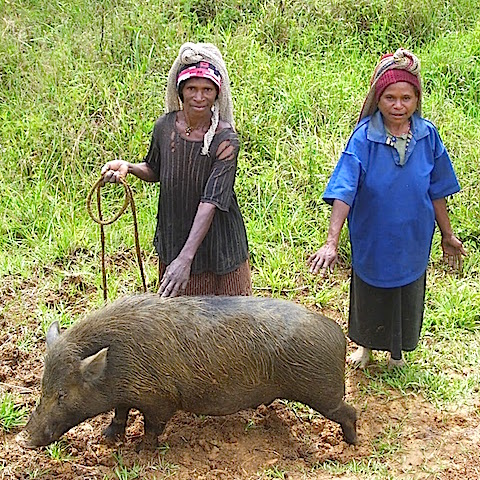Women and Poverty in Rural Papua New Guinea
Written by Shila Yukuli Paia on Friday, 21 August 2015. Posted in Papua New Guinea
"POVERTY CAN NEVER BE DEFINED AND ADDRESSED UNLESS THE VOICES OF THE POOR ARE HEARD."

This is part of my story. Undoubtedly there are many similar stories of girls and women especially in marginalized communities. A significant body of literature1 indicates that poverty and health are a vicious cycle, and most importantly that poverty is gendered. Being a man or woman has a significant impact on health and economic outcomes as a result of both biological and gender-related differences. In this story, poverty is not a situation defined by wealth and money as used by international development experts2. Poverty is associated with vulnerability and deprivation. Poverty is a situation of denial of access to basic health, education and economic opportunities and services, which are a basic human right3. And the causes, underlying determinants and the long and short term effects of such marginalisation are created and recreated through a hierarchy of socio-cultural, political and structural determinants rather than a single dimension4.
Papua New Guinea is a patriarchal society. Gender bias and inequality exists in every sphere, deeply rooted in a socio-cultural belief that women are subordinate to men, and influenced by perceptions of women being the property of men. Gender based violence results from power imbalances; women have limited access and control over resources and income. This undermines women’s confidence and capacity for full participation in social, economic and political development. PNG’s high child and maternal mortality rates and low life expectancy at birth are among the worst public health indicators in the Pacific Region. The maternal mortality rate is 220 out of every 100,000 live births. In the rural sector one woman out of every 25 dies in child birth, compared to one out of every 35 in the urban sector. This is clearly associated with early marriages, anemia, malnutrition and poor family planning which are rooted in poverty, illiteracy and the cultural obligations of women’s role in farming and reproductive work5. A study done in 2000 by Narayan and her team demonstrate that the experiences of poor people need to be given attention in any development policy and planning. The voices of women and girls are of particular importance because of their experience and patterns of diseases and access to available health care6.
I have been very fortunate to live my grandmother’s dream. I have completed a nursing qualification, a Health Science degree and a Master of International Development in Australian universities. However, I have joined Fulcrum Aid to work towards empowering women and disadvantaged communities so their voices are heard in dreaming a change of equality and of flourishing livelihood.
1. Cammack, D 2008, Background paper for the chronic poverty report 2008-09: chronic poverty in Papua New Guinea, Chronic Poverty Research Centre, viewed 8 May 2011 (http://www.chronicpoverty.org/)


Comments
Post a Comment